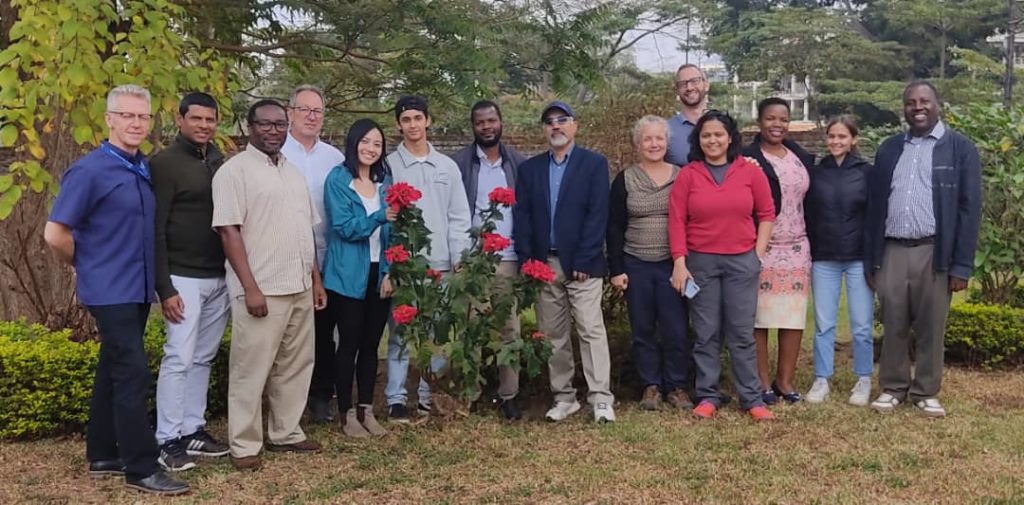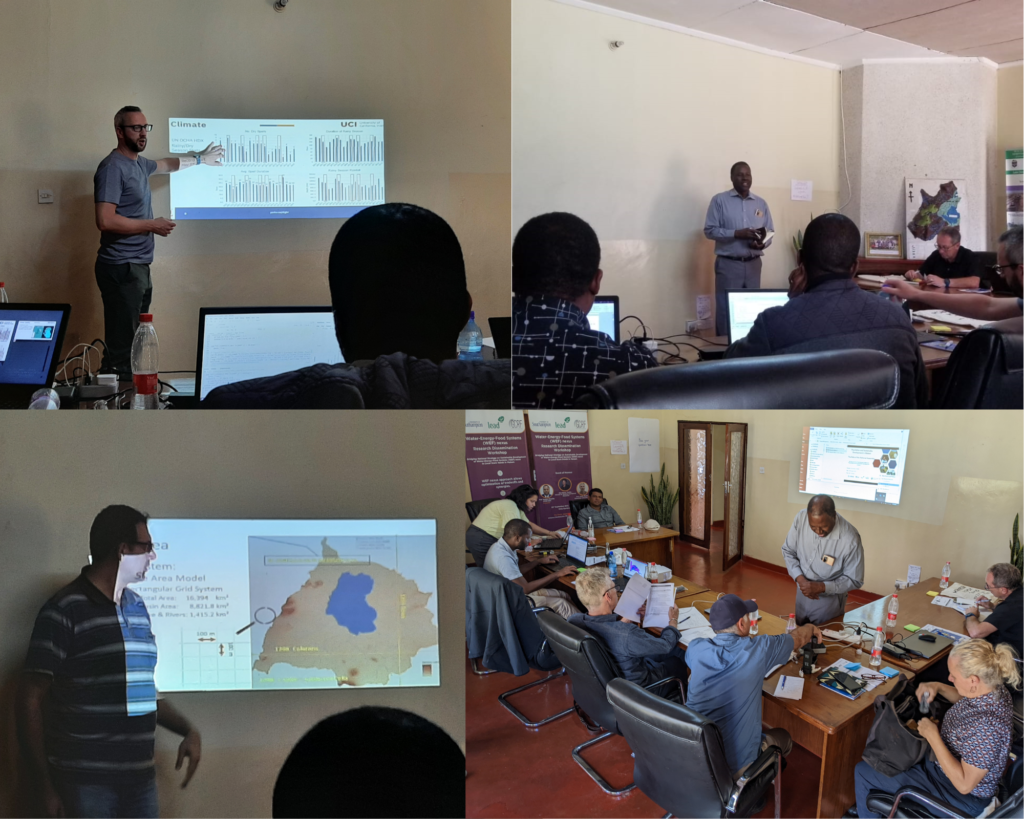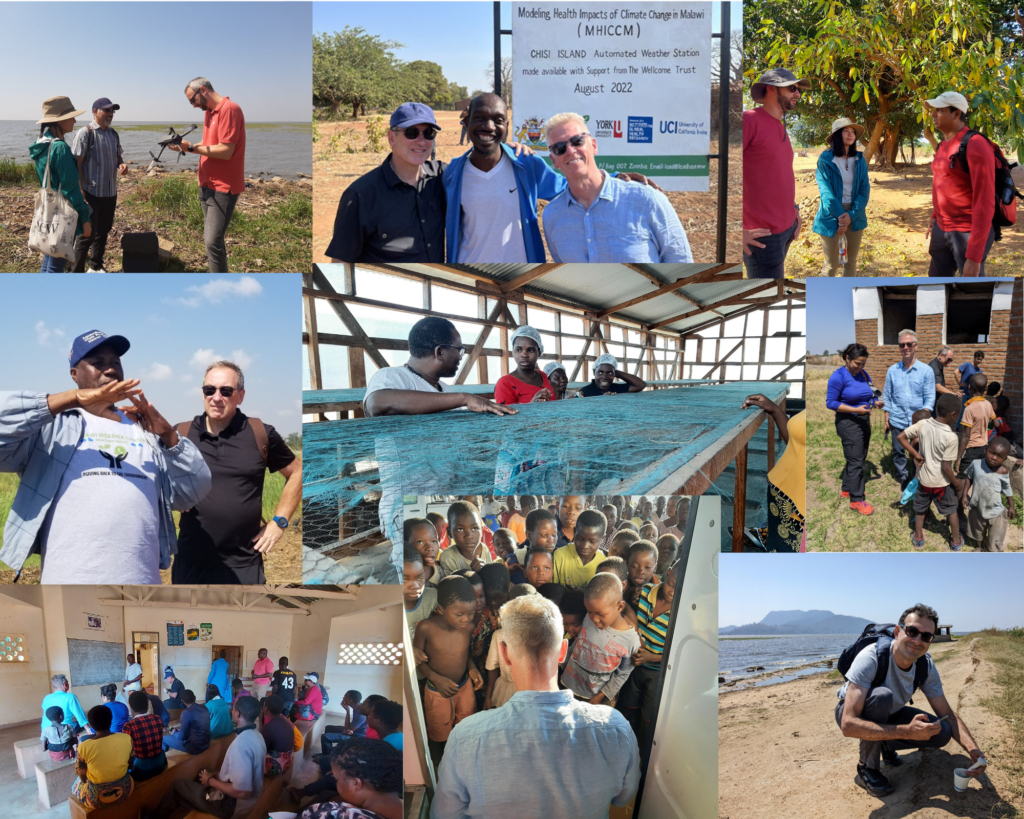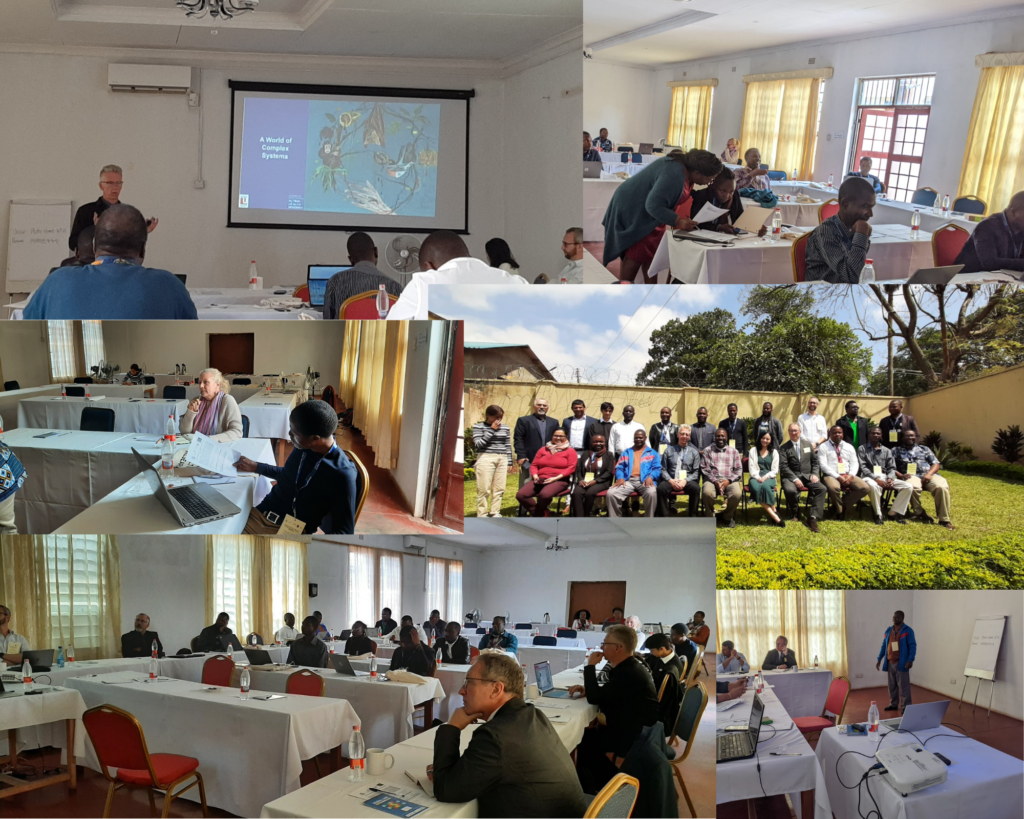Post
Published on December 9, 2022
This was our first in-person and onsite meeting of all PIʼs, fellows, and graduate students since the onset of the global COVID pandemic. From August 15 until August 25, we engaged in stakeholder consultations, partnership engagement meetings with the University of Malawi Leadership, and visits to the Chilwa Basin and Chisi Island.
The participants included:
- Faculty: Dr. James Orbinski, Principal Investigator (PI) (Dahdaleh Institute); Dr. Sosten Chiotha, Co-PI & LEAD Regional Program Director; Dr. Richard Matthew (UCI), Advisor-Climate Change policy; Dr. Ali Asgary (York University), Advisor-Agent-based Modelling
- Research fellows: Dr. Byomkesh Talukder, Research Fellow (DI); Dr. Jochen Schubert, Researcher (UCI); Dr. Mohammadali Tofighi, Postdoctoral Fellow (DI); Dr. James Chirombo, Global Health Fellow; Patrick Likongwe, Research Fellow (LEAD)
- Graduate students: Nilanjana Ganguli, Project Manager & PhD candidate (York University); Ann Jacee Le, PhD Candidate (UCI)
- By invitation: Vanessa van Schoor, Consultant; Sphiwe Nyalugwe, LEAD Community Engagement Officer

Last day of the August 2022 workshop in Zomba, Malawi
From left to right: James Orbinski, Byomkesh Talukder, Patrick Likongwe, Richard Matthew (back), Ann LeHolland, Taidgh Shrivastava, James Chirombo, Ali Asgary, Vanessa van Schoor, Nilanjana Ganguli, Jochen Schubert (back), Sphiwe Nyalugwe, Riya Orbinski, Sosten Chiotha.
Please read below for the workshop agenda and description of activities. Some key achievements include: identifying data gaps; strategizing as a group to complete data collection; and building relationships with stakeholders from the Malawi government and local project partners.
Day 1 – Project overview and site visit planning

Meetings held at the LEAD office in Zomba
Day 2 & 3 – Site Visits to Lake Chilwa and Chisi Island

Day 4 – Reflections on site visit, data collection planning &stakeholder workshop planning
Key concerns for communities
- Project continuity and usefulness were key concerns for communities.
- Groundwater salinity, rapid deforestation, lowered fish yield and agricultural productivity were some of the most discussed environmental risks in the area and Malawi in general.
- Despite the reduced incidence of cholera in the basin, the disease continues to be the highest ranked health risk as perceived by the local communities in Lake Chilwa. The other health concerns (in descending order) are as follows: Malaria>Respiratory problems>COVID-19.
- Schistosomiasis is more prevalent during the rainy season and is detected by patients mostly at the chronic stage.
- Hunger is more prevalent now than before as Cyclone Anna damaged rice crops, a main source of income in the basin. Fish yield have also not recovered as expected (every 3-4 years) despite the higher water levels in the lake.
- Hunger and clean water availability will become exacerbated on Chisi Island without government support.
Model
- The model should integrate the multiple external factors influencing the health impacts on the basin.
- Climate perceptions will vary from stakeholder to stakeholder, and this should be considered in model development.
- The model must have practical utility for communities and policymakers and include metrics for reliability.
- Recommendations to policymakers must be different from those to communities.
Interventions
- Interventions should be sustainable, promote shared vision and drive shared action.
- Multifaceted interventions that amplify local government programs should be prioritized.
- Priority should be given to devising interventions with short term benefits for communities in addition to mid-term and long-term benefits for policymakers.
- Imperative to analyze feasibility of interventions before making recommendations to communities and policymakers.
Day 5 – Stakeholder Workshop with Malawi government

Workshop held at the Mango lodge in Zomba
Summary:
- Stakeholders from the Ministry of Health, Ministry of Water & Sanitation, Ministry of Natural Resources and Climate Change, Department of Disaster Management Affairs (DODMA), Department of Nutrition and HIV/AIDS, MoH, (DNHA) attended the meeting.
- Dr. Orbinski led the workshop and introduced the project to all stakeholders.
- The workshop was designed to understand the local needs around climate forecasting and adaptation, and to identify potential applications of the model at community and national levels.
- Through presentations, Q&A, and structured group discussions, stakeholders and researchers identified a set of key requirements for the model such as local evidence-based predictions, versatility, reliability (confidence levels of predictions), capacity-building (on-going training), sustainability (locally managed), utility as a planning and forecasting tool (setting targets, indicating extreme scenarios, identifying gaps in indicators).
Day 6: Workshop wrap-up, final deliverables, and future projection
Summary: The final deliverables will be five publications, a high resolution hydrodynamic (flood) model, and an Agent-Based Model. Through LEAD’s network in Malawi, the team will engage with local experts and stakeholders for continuous consultation to adapt the model to cater local needs.
Themes | Planetary Health |
Status | Active |
Related Work | |
Updates |
N/A
|
People |
James Orbinski, Director - Active
Mohammadali Tofighi, Postdoctoral Fellow, ADERSIM - Active Byomkesh Talukder, Research Fellow, Planetary Health - Alum Ali Asgary, Faculty Fellow, Faculty of Liberal Arts & Professional Studies - Active Nilanjana Ganguli, Dahdaleh Global Health Graduate Scholar, Faculty of Environmental and Urban Change - Active |
You may also be interested in…
Recap — Research Exploration: Taking a Critical Social Science Approach to Global Health Research
The Dahdaleh Institute held its fourth annual Critical Social Science Perspectives in Global Health Research Workshop (CPGH) as a hybrid event on Wednesday, March 29, 2023. This year, over 30 researchers participated to discuss the …Read more about this Post
Now Accepting Applications for 2025 Dahdaleh Global Health Graduate Scholarships!
The Dahdaleh Institute for Global Health Research is pleased to announce that we are now accepting applications for 2025-2026 Dahdaleh Global Health Graduate Scholarships. Join us in shaping the future of global health. The Dahdaleh …Read more about this Post
Discover York Academics: Laptop and Learn
Discover York Academics (DYA) is a dynamic eCV platform that enables faculty to showcase their work, connect with peers, indicate availability for graduate supervision, and enhance visibility to industry and community partners. With automatic updates …Read more about this Post
